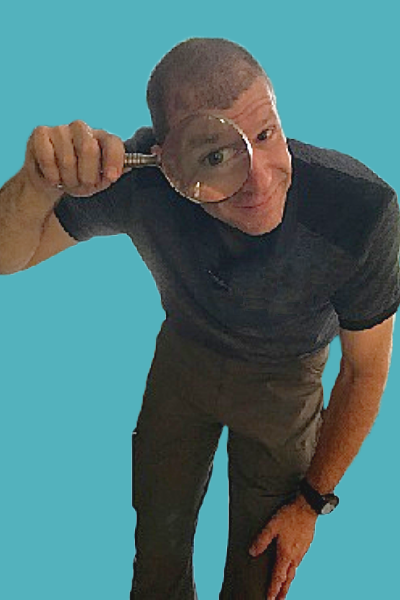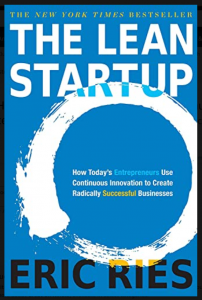One problem facing start-ups is how to become proficient in your chosen industry. This is certainly a problem for new home inspectors. In business, as with many things in our lives, we typically strive to create a perfect product before we put it out for public consumption. Unfortunately, the reality is that nothing in this world is ever perfect. So, if we are striving to produce a perfect home inspection report, or to have the perfect product for sale, or to create perfect recipes before opening our restaurant, then we will never open our restaurant, we will never sell our product and we will never do a home inspection, because we will never attain the perfect product.

One device that helps us to get past this start-up hurdle is the idea of the MVP: the minimally viable product. An MVP is achieved by producing a product to the minimum standards that are acceptable to you and your client.
This approach allows you to get started in your business, producing something that your clients are willing to pay for, while at the same time having the expectation that through self-assessment and client feedback you will be able to adjust and improve your product as you grow your business.
Unfortunately, using the MVP approach is particularly difficult for home inspectors, as we tend to be meticulous individuals by nature. Personally, I struggle with this battle on a daily basis. There are many different businesses and products that I would like to explore, but I have difficulty overcoming the hurdle of striving to create the perfect product prior to launch.
This is something that I am constantly trying to overcome, and it’s a fault that I will undoubtedly struggle with the rest of my life.
For home inspectors, an easy way to handle this problem is to break down your duties into three categories: primary, secondary and tertiary responsibilities. When you start out doing home inspections, concentrate on ensuring that the primary things are included in your inspection report. This allows you to have a product that people will pay for, while at the same time protecting yourself from liability. Your primary responsibilities are the standards of practice that you must adhere to in your report. These standards may be those required by your state, your professional organization or simply the standards that you (personally) operate under.
When you begin your inspection career, these standards are the main thing that you must concentrate on in your report. Ask yourself, “What things must I absolutely have in my report, to keep me from getting sued and to provide my client with the information that I am morally, legally and contractually obligated to provide them?” These requirements become your primary concern: your MVP.

As you gain experience and knowledge in the inspection business, you can begin to expand your focus to include secondary problems. These are things that can also cause your clients problems, but are typically considered beyond the minimum standards expected of a home inspector. And while technically, these items are beyond the scope of a home inspection, they are typically things that most clients would expect you to include in your inspection report.
As you progress in your inspection career, and become more proficient at your chosen craft, tertiary items may begin to find their way into your inspection report. These are typically things that are incorrect in the home, but will probably not cause any significant grief for your client, the future homeowner. Inclusion of tertiary items in your inspection report is a function of experience as well as the vision that you have for your business.
Some inspectors see no value in providing information on tertiary items, while others cannot understand why an inspector would not include them. Regardless of your business model, tertiary items should only become an item of concern once you have mastered the primary and secondary levels. Depending on the home inspector’s background and abilities, this process may take a few months, or may stretch into years of on-the-job experience.
The most important thing is to remember is the order in which these items must be mastered. You cannot start out your inspection career concerned with tertiary items, as you will end up missing important primary and secondary items, taking too much time on your inspections, and being accused by your agents and clients of over-emphasizing (potentially) trivial items.

A good example of the MVP strategy in action is what happens when an inspector examines the electrical service coming into a residence. Our primary focus is on the standards of practice requirements: service entrance and equipment, main disconnect, grounding, compatibility of over-current devices and the presence of solid aluminum wire. These are the minimal items that we must report on to protect our clients as well as ourselves. Beginning inspectors must focus the bulk of their attention on these items, ensuring that they are correctly reported.
Secondary focus should include checking for components that have known issues (recalls, class action lawsuits, etc.), updated safety protection (AFCIs, GFCIs, etc.) and easily visible defects (arcing, double taps, etc.)
Tertiary items would include things that are not correct (according to codes or industry standards), but do not pose an immediate safety concern (improperly colored wires, proper labeling, etc.) While it can be argued that providing information on these tertiary items in your inspection report provides additional value for your customers, focusing on them without including primary and secondary items is foolhardy at best.
Knowing where to focus your attention and energy is one of the first major hurdles that must be overcome in your inspection career. Focus on the most important things, and the others will (eventually) fall into place.
Would you like to get an email every Friday where we share the newest things we’ve discovered about home inspections? CLICK HERE to sign up.
Want to be an Influencer in Your Field? Share This Post!
Thanks, Joe


